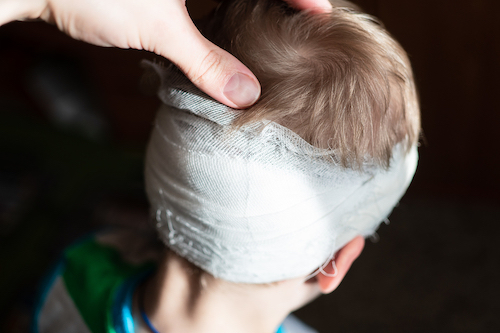 Children of parents with mental illness are at greater risk of injury than their peers.
Children of parents with mental illness are at greater risk of injury than their peers.
A study from Karolinska Institutet in Sweden found that the risk is elevated for children of parents with mental illness up until the age of 17.
“We found that children of parents with mental illness have a higher risk of injuries, but the risk is highest during the first year of life. We also found that the risk is higher regardless of whether it is the mothers or the fathers who are living with mental illness,” Alicia Nevriana, a PhD student at the Department of Global Public Health at the Karolinska Institutet and the study's corresponding author, told Theravive.
The study, conducted in collaboration with researchers from the University of Manchester in the UK, monitored 1.5 million children living in Sweden born between 1996 and 2011. From that group, more than 330 thousand children had at least one parent who had been diagnosed with a mental illness.
In Sweden, seven to 11 per cent of children have at least one parent with a diagnosed mental illness. Methods of protecting these children have largely focused on preventing neglect or maltreatment as a priority, with stopping accidents or injuries as a lower priority.
In the United States, it is estimated that more than 12.5 million parents have a mental illness. 2.7 million parents have a serious mental illness. Mental illness is more common in mothers than fathers and is the least common in Asian parents when compared with other races. Parents aged 50 years and older had lower rates of serious mental illness when compared with younger age groups.
In the Swedish study, the researchers found that children aged from newborn to 12 months were at a 30 per cent higher risk of injury if they had at least one parent with a mental illness. This risk declined as the child grew up, but remained six per cent higher from the age of 13 to 17 for children with mentally ill parents when compared with their peers.
The risk of injury was marginally higher for children of parents with mental disorders like depression, anxiety or stress related illness when compared with mental illnesses like psychotic disorders and schizophrenia. The risk of injury was higher for those with a mother who was mentally ill than a father who was mentally ill.
The risk of uncommon forms of injury, like that from interpersonal violence was more common when compared with common injuries like traffic accidents or falls. Though the authors note interpersonal violence is still uncommon in these families.
The study did not determine why children who have parents with a mental illness had a higher risk of injury, though the researchers hypothesise issues surrounding child-proofing the home, and adequate supervision, may play a role.
“We know that people with mental illness are often exposed to vulnerable living conditions, so it might be more difficult for them to make the housing child-secure. It might also be difficult for some parents under all these circumstances to maintain parental supervision,” Nevriana told Theravive.
“Parents with mental illness might benefit from access to parental support for child injury prevention, as well as from early identification and treatment of the mental illness,” she said.
But Nevriana notes implementing support programs may need to be dependent on context, to best help families.
“We might start from a dialogue between the parents and healthcare professionals on what they think and what their experiences are around child safety. Then we could go from there to help the parents identify feasible child safety measures given their living situations, while also managing their illness.”
In future studies, Nevriana hopes to explore other factors that might contribute to injury in children with mentally ill parents.
“It would be interesting to see how much the influence of factors such as housing conditions, neighbourhood, parenting, or medications actually plays a role in these associations. It would also be interesting to see whether tailored support for these families might actually help with child injury prevention.”
Nevriana says the research highlights that parents with mental illness need increased support, particular in the first 12 months of a child’s life.
“This study is not a call to put the blame on parents with mental illness. The interplay between parental mental illness and child injury is likely to be more complex than what our study could capture. If anything, we as a society should do our best to support these families.”
Elizabeth Pratt is a medical journalist and producer. Her work has appeared on Healthline, The Huffington Post, Fox News, The Australian Broadcasting Corporation, The Sydney Morning Herald, News.com.au, Escape, The Cusp and Skyscanner. You can read more of her articles here. Or learn more about Elizabeth and contact her via her LinkedIn and Twitter profiles.